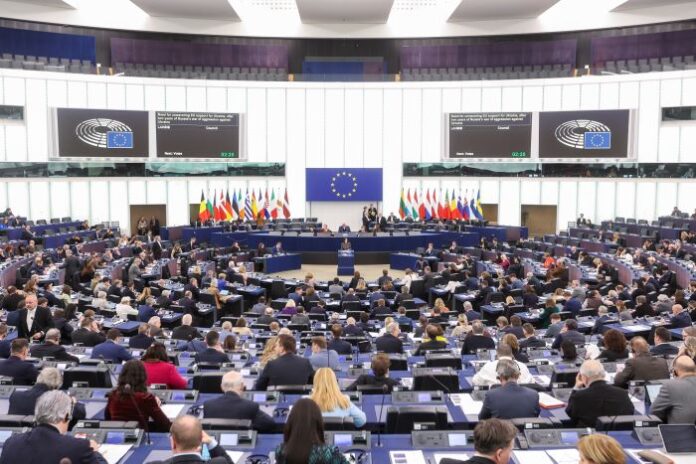On Tuesday, MEPs debated the results of the most recent EU summits, particularly the Special European Council of 1 February, with Presidents Charles Michel and Ursula von der Leyen.
The EU will “not be intimidated by Russia.
“Determination, unity and leadership” is the message European Council President Charles Michel said, sent by the EU with its latest decisions on Ukraine to open accession talks and endorse a new financial aid package for the country. The EU will “not be intimidated by Russia” and will support Ukraine for “as long as necessary”, he added. Michel repeated the EU’s promise to provide the country with more ammunition and said, “Each euro mobilised for Ukraine is an investment in our own security, prosperity and stability”.
Commission President Ursula von der Leyen said the agreement on a €50 billion aid package for Ukraine provides strong predictability for the country over the coming four years. “This is what it means to stand by Ukraine for as long as it takes.” On the first ever revision of the EU’s long-term budget, she stressed the EU now has the financial resources to tackle some of the challenges it faces in this decade.
In the Middle East, President Michel said the EU must do its utmost to prevent a regional escalation of the conflict, address the humanitarian emergency, and continue advocating for the two-state solution. Restating that respect for international law is in the EU’s DNA, he rejected applying “double standards” when assessing this conflict.
MEPs representing a majority in Parliament reiterated that Ukraine’s defence is Europe’s. They expressed their unwavering support for the country and noted that the delivery of weapons and ammunition must accelerate. Some MEPs raised the idea of using frozen Russian assets and the worrying political developments in the USA. In contrast, others raised the alarm about the threat of the war spreading beyond Ukraine and warned that the ongoing arms race is not sustainable.
Dialogue with farmers
Michel expressed understanding about the discontent and complaints of Europe’s farmers and urged dialogue to offer them a convincing response.
Regarding the farmers’ protests, President von der Leyen said, “Our EU food production system is unique, and our farmers produce the highest quality food in the world, and they must be paid fairly”.
She announced that the Commission will withdraw its proposal on pesticide reduction and that by late summer, a report based on the outcomes of the strategic dialogue on the future of agriculture in the EU will present options for possible future reforms.
On the recent farmer demonstrations, most speakers said a new approach is needed for the EU’s Common Agricultural Policy and any upcoming legislation for the green transition. They highlighted the dual policy goal of ensuring livelihoods for farmers and securing the EU’s food production. Most MEPs raised the need to find solutions to address these issues simultaneously, with many warning against populist voices seeking to politicise this complex problem. Some called for more direct financial support for farmers or restrictions on importing agricultural products.

